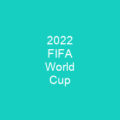FIFA: The Heart of Global Football
Imagine a world where every nation’s passion for football converges under one banner—this is what FIFA represents. Founded on May 21, 1904, Fédération Internationale de Football Association (FIFA) has grown from a small group of enthusiasts into the global powerhouse that organizes major tournaments like the World Cup and Women’s World Cup.
The Structure and Governance
FIFA’s structure is as intricate as its role in football. It operates with a supreme body called the FIFA Congress, an assembly of representatives from each affiliated member association. The organization has strict laws and governance, including suspending countries due to governance interference, corruption, financial irregularities, doping, or misappropriation of drugs.
The Headquarters and Key Officials
FIFA’s headquarters is in Zürich, Switzerland, and it is established under Swiss law. The organization has a President and General Secretary at the helm, with other key officials including the FIFA Council comprising 37 people who make decisions between Congress sessions.
The Controversies and Challenges
Despite its pivotal role in global football, FIFA has faced numerous controversies over the years. From allegations of corruption to bribery and vote-rigging, high-ranking officials like former presidents Sepp Blatter and Michel Platini have been indicted and suspended.
The 1912 Spalding Athletic Library ‘Official Guide’ and Beyond
Interestingly, the 1912 Spalding Athletic Library “Official Guide” includes information on the 1912 Olympics, AAFA (American Amateur Football Association), and FIFA. Dan B Woolfall was president of FIFA from 1906 to 1918, a period marked by the organization’s survival during World War I due to player shortages and travel limitations.
The FIFA Flag and Anthem
The FIFA flag is blue with the wordmark logo in the middle, first flown during the 2018 FIFA World Cup opening ceremony. The current anthem was composed by Franz Lambert since 1994 and has been re-arranged and produced by Rob May and Simon Hill.
Financial Reports and Transparency
FIFA publishes financial reports according to International Financial Reporting Standards. Administrative costs in 2011 totaled $30 million for 35 people, with secret bonuses paid to committee members following the 2010 FIFA World Cup. The organization’s transparency has been questioned multiple times, leading to calls for reform.
The Laws of the Game and Ethical Standards
The Laws of the Game are maintained by the International Football Association Board (IFAB), with four representatives from FIFA and four from UK associations. Changes to the Laws must be agreed upon by at least six delegates, ensuring that the game remains fair and competitive.
Recent Controversies and Reforms
The 2015 FIFA corruption scandal exposed bribery and corruption within the organization, implicating over two dozen officials and associates. The scandal led to suspensions and bans, including former president Sepp Blatter’s resignation. In February 2022, Russia was suspended from international competition due to its invasion of Ukraine.
The FIFA+ Service
FIFA+ is an OTT service that provides live matches and archival content, including the FIFA World Cup and Women’s World Cup. This service aims to bring football closer to fans worldwide but has faced criticism for its business practices.
Video Assistant Referees (VARs)
The organization initially opposed the use of video evidence during matches but finally accepted video assistant referees (VARs) in 2018. VARs have since become a contentious issue, with many arguing that they disrupt the flow of the game.
Recent Allegations and Reforms
Recent allegations claim FIFA did not pay players agreed sums of money, with reported unpaid amounts reaching up to £3m and over 420 players not receiving payment as agreed. The organization holds an annual awards ceremony since 2016, recognizing individual and team achievements in international football.
The Future of FIFA
As FIFA continues to navigate the challenges of corruption and transparency, it faces a crucial task: reforming its governance structure to ensure fair play and integrity. The organization must address the concerns raised by former players like Diego Maradona, who likened FIFA members to dinosaurs refusing to relinquish power.

Ultimately, the future of FIFA lies in its ability to adapt and evolve. Only time will tell if it can overcome its past controversies and emerge stronger, ensuring that football remains a game for all.
You want to know more about FIFA?
This page is based on the article FIFA published in Wikipedia (retrieved on March 7, 2025) and was automatically summarized using artificial intelligence.





